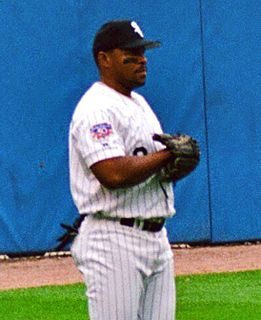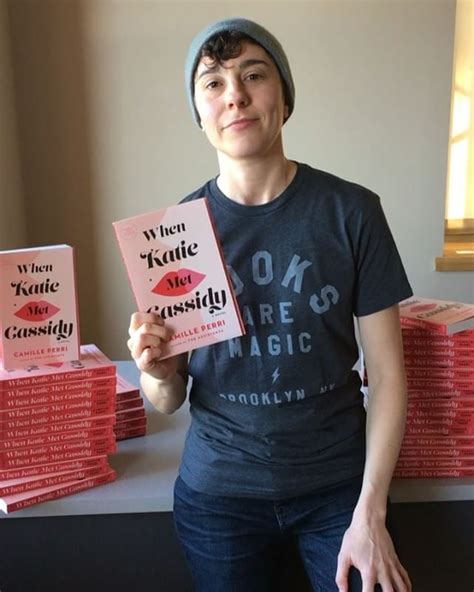A Quote by Charles Eisenstein
You could ask: Why are people attracted to narratives that justify the terrible things that we're doing to the planet? Why are people attracted to narratives of control and fear and hunting down the terrorists, and this uncaring attitude toward nature? These come from what I call the perceptions of separation and the experience of separation, the experience of alienation, the experience of scarcity and anxiety and competition, and a world in which everybody is out for themselves and nobody cares.
Quote Topics
Alienation
Anxiety
Ask
Attitude
Attracted
Call
Cares
Come
Competition
Control
Could
Doing
Down
Everybody
Experience
Fear
Hunting
Justify
Narratives
Nature
Nobody
Nobody Cares
Out
People
Perceptions
Planet
Scarcity
Separation
Terrible
Terrible Thing
Terrible Things
Terrorists
Themselves
Things
Toward
Uncaring
Which
Why
World
Related Quotes
A poem is like a person. The more you know someone, the more you realize there is always something more to know and understand. A final understanding could probably only begin upon permanent separation, or death. This is why we come back to certain poems, as we do to places or people, to experience and re-experience, to see ourselves for who we truly are, and to continue to be changed.
Because I'm a performer I can justify and sometimes sell the things about me that offend and shock the conventional world. I need to live life in the fast lane. I need to do things to excess. I need to go over the edge. I have an obligation to experience the things most people can't experience. The taboos. The things you're not supposed to know or do. That's part of my job. That's why I do it. I would probably do it anyway.
There were so many Cuban-Americans upset that we were going to Cuba and I was curious to see why they were so angry, and anti-Castro. I found out as soon as we got there. The people were treated terrible. The conditions were terrible. I can see why people risk their lives and limbs to get out. (Fidel Castro) lives like a king and won't help anybody, and has everybody scared to death. Nobody lives a normal life. It was still a good experience, but I thought we should just play that one game.
I really do think how we frame things determines so much of our experience, and I've been talking to a lot of oncologists, like, why don't we call them transformation suites and give people transformation juice and have guides that support people when they're going through chemo so you could actually burn away what needs to be burned away, as opposed to this dread, terror, horror, which is a very different experience.
Often when people first hear this part of the Secret they recall events in history where masses of lives were lost, and they find it incomprehensible that so many people could have attracted themselves to the event. By the law of attraction, they had to be on the same frequency as the event. . . .those thoughts of fear, separation, and powerlessness, if persistent, can attract them to being in the wrong place at the wrong time
I say that creeds, dogmas, and theologies are inventions of the mind. It is the nature of the mind to make sense out of experience, to reduce the conglomerates of experience to units of comprehension which we call principles, or ideologies, or concepts. Religious experience is dynamic, fluid, effervescent, yeasty. But the mind can't handle these so it has to imprison religious experience in some way, get it bottled up. Then, when the experience quiets down, the mind draws a bead on it and extracts concepts, notions, dogmas, so that religious experience can make sense to the mind.
I certainly firsthand know and love people who didn't fall in love with a woman or didn't even realize they were attracted to women until much later in life, and I'm sure that's true for many men who find themselves attracted to men as well. It doesn't always happen in adolescence. And that experience is completely valid and OK.
When you're about three years old, you start to learn how to be manipulative. I know this from my own experience - I created this expression between sadness and dissatisfaction to get people to make me feel better, to get me presents. I created this face based on movies without even understanding it. I felt attracted to faces and body language. I remember I was always fascinated with why some people are considered beautiful and some are not. Everybody's got two eyes and one nose, but it's the small details. It is why we fall in love or why we want to kill somebody we haven't even spoken to.
You can't teach anyone. You can't tell anyone. That's the thing you have to sit down and experience in order for it to mean anything. You can't intellectualize it. It's like why movies are cool. It's a combination of pictures and design and acting and music can create an experience that is outside of the experience that you can actually have in reality, which gets to my motion picture philosophy. People are like, 'aren't you trying to make the movies as real as you can?'
Just as children, step by step, must separate from their parents, we will have to separate from them. And we will probably suffer...from some degree of separation anxiety: because separation ends sweet symbiosis. Because separation reduces our power and control. Because separation makes us feel less needed, less important. And because separation exposes our children to danger.



































